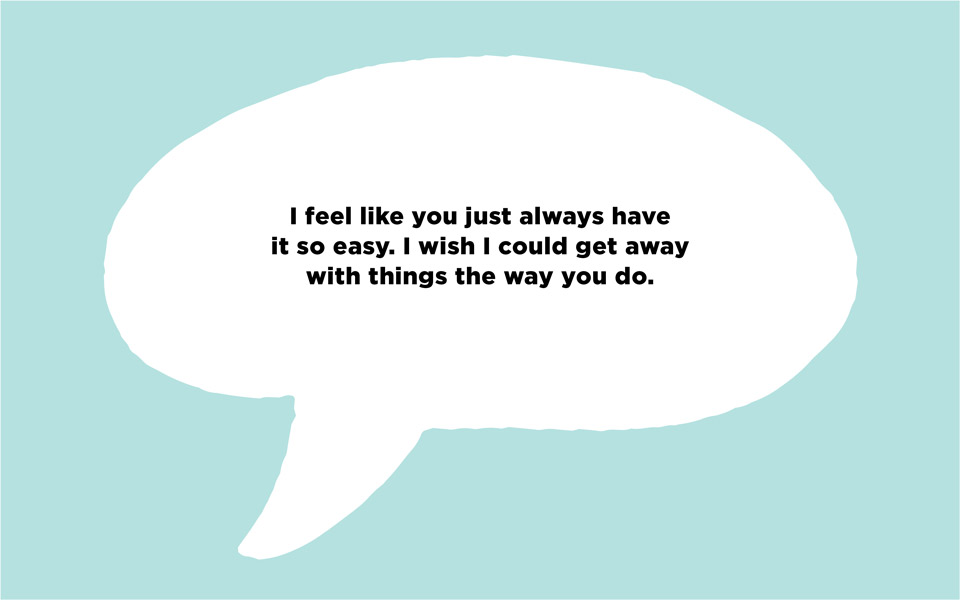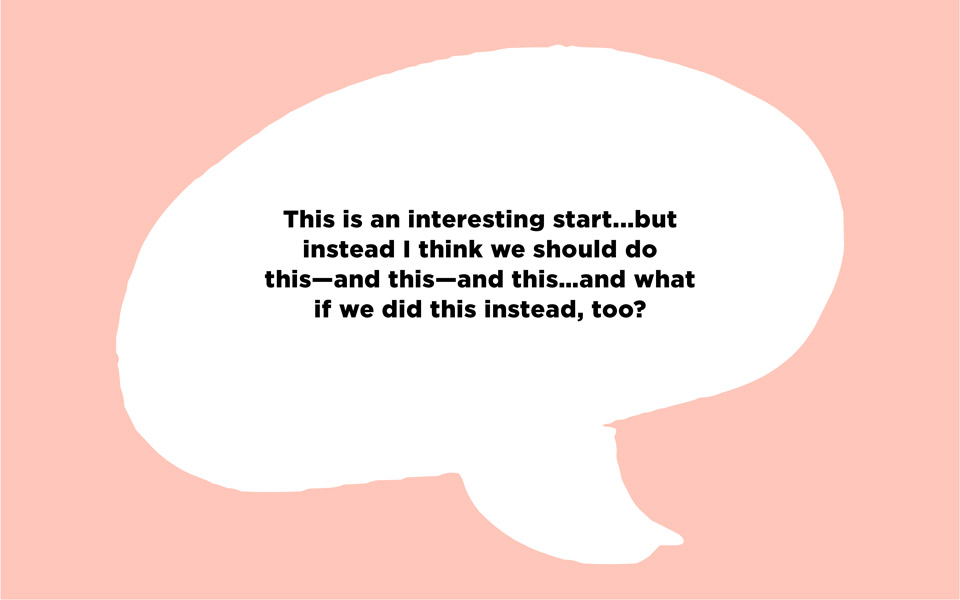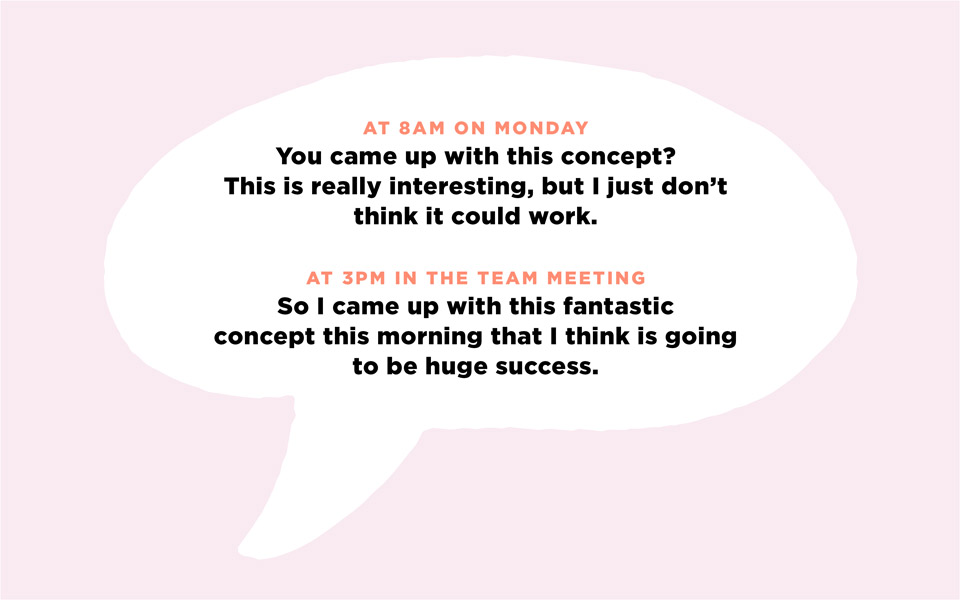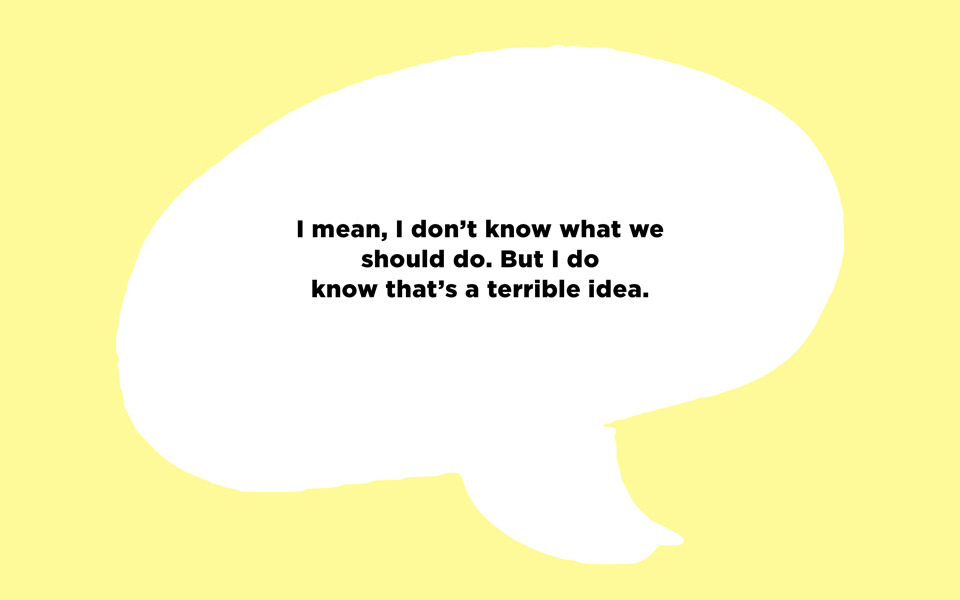It's a little hard to believe that office bullies exist, but they do.
All bullies have one goal in common: tearing you down in order to build themselves up. We all know this, probably thanks to encountering one at some point in our youth. The depressing reality is that bullying continues long after we leave the high school halls.
We strive daily to be the best possible versions of ourselves, but let’s face it, the workplace can often make us feel like we’re teenagers again. The cliques, gossip, and overall negativity come streaming back into our lives, just when we think we'd shut that door for good.
There's an upshot of adulthood, though. We've gleaned some political savvy along the way, and dealing with bullies no longer means hiding (or venting in a Burn Book a la Mean Girls).
The 5 Most Common Bully Types in the Workplace
So we're breaking down five of the most common
office bullies and what you can do to prevent them from wreaking havoc on your 9-to-5.
If your supervisor or your boss is the bully chipping away at your morale, we have an article profiling the worst kinds of bosses and how to disarm them.
5 Types of Office Bullies + How to Deal With Them
Before we go into some of the most difficult personalities we find in the workplace, let's talk about
toxic workplaces. If you're finding that all of these personalities not only exist but are actively celebrated in your workplace, you might have a bigger problem.
In a
recent article by Harvard Business Review, writers Deepa Purushothaman and Lisen Stromberg detail the "Toxic Rock Star". This is the coworker who is, well, a jerk. However, since their performance is strong, they are actively celebrated.
As we all learned in the cafeteria, bullies tend to operate from a position of power and a pointed lack of self-esteem. If your workplace empowers this kind of behavior, it might be toxic or worse, a
hostile work environment.
More Like This:
1. The Green-Eyed Monster
We all know this bully because we've shared similar feelings at some point. It's human nature to feel inferior and threatened by appearance, education, status, personality, or really anything that makes us feel self-conscious.
This bully specializes in making you feel guilty about your "luck" at work and/or bad for them because of their own experiences. It's a relationship entirely based on an unfair comparison.
How to Disarm:
When dealing with a colleague's unfair confrontation, it can be easy to want to respond by arguing. But as your mother always said, be the bigger person. Do your best to eliminate any feelings of animosity.
Instead of feeding into the resentment, offer a genuine compliment about their work or share a tough moment you encountered that day to prove you're human, too. When working through a challenging project, ask for their input. Sometimes, our biggest office bullies forget that we're actually team members and not foes. Create space for collaboration when possible.
A
jealous or envious coworker is bound to lighten up and lend a helping hand when they feel needed, heard, and empowered. If this doesn't work, remember your own boundaries. Don't allow the green monsters to put their own negative feelings on you.
More Like This:
2. The Control Freak aka The Perfectionist
These bullies have been around since grade school. They often mean well, but definitely don't play well with others.
Their controlling tendencies mean they tend to steamroll projects, taking their leadership roles to an impractical level, offending coworkers, and ignoring team dynamics. And whether you work in a creative agency or a technology firm, they're impossible to avoid.
If your workplace control freak increases your workload through micromanagement, unrealistic expectations, or nit picking, take a long, deep breath. We know this is one of the least productive personality types, but it's not you.
How to Disarm:
Having assignments and responsibilities taken away from you, over and over and over again, can feel intimidating and disheartening. Ironically, being silenced gives you more reason to speak up.
Because the Control Freak is used to taking charge at meetings, it's often better to request a private conversation where you can guarantee their full attention. When you meet, explain to your coworker (or manager) politely but honestly how their tendencies are affecting your work.
Often, the
act of communicating the issue solves it. Sometimes people are unaware of their behavior and just need someone to call their attention to it—it never hurts to speak up. Ask questions about their input to garner more constructive feedback. Here are a few examples:
- At the beginning of a project: I know you have very high expectations for this project. Is there anything, in particular, you'd like me to keep top of mind while working through it?
- In the middle of a project: I wanted to run this example by you for your input. Do you think this seems like a good direction or is there anything you'd try differently?
- When receiving nitpicky feedback towards the end of the project: I've created a few checkpoints, but I'm still sensing frustration from your end? Where is the disconnect happening?
When all else fails, use our favorite buzzword:
productivity. For the Control Freak, running projects successfully is their end game. Point out that you feel like you could be contributing more to a project than you are and you've got their attention. Say you're concerned you're being "underutilized." Or bring up the
80/20 rule.
Even a Control Freak can't sustain that effort 100 percent of the time—if you take responsibility she's not super pumped about, she can pour more time into her strengths. Everyone wins. Put it in those terms and she'll quickly take you up on your request to get more involved.
More Like This:
3. The Dr. Jekyll And Mr. Hyde aka The Flip-Flopper
What's worse than thinking you know someone—only to find they turn out to be the complete opposite? Maybe it's a coworker who tells you one thing but doesn't deliver.
Or a boss who acknowledges your great idea then presents it as his or her own in a meeting. Or a manager who tears you down and
blames you for it. Regardless, these bullies are all too common in the workplace.
This sort of two-faced toxic coworker is tough, because they have several faces. It can be near impossible to ascertain to whom you're speaking at any given moment.
How to Disarm:
This two-faced bully is tricky because they seem authentic and heartfelt when you have direct contact, but then take to Slack or the break room to put you down.
To stop the behavior, always try talking to them in person. Even though it may feel uncomfortable, that first move goes a long way. Try hashing it out by
actively listening and remaining calm—don’t feed into the drama and instead take what they say with a grain of salt.
Pro Tip: If the verbal communication isn't working as well as you hoped, try the CYA trick. Follow up on conversations with written emails and paper trails. When sharing ideas, keep track of your communication so that your ideas aren't appropriated by another.
If and when the behavior continues, address it with your boss or HR. They can potentially mediate a meeting for you both to address the root of the problem. Bring your receipts (aka your saved correspondence) to solidify your case.
More Like This:
4. The Negative Coworker
Possibly the most hurtful bully is the constant critic.
Nothing's more annoying than unsolicited feedback. Furthermore, there is a huge difference between constructive (if unsolicited) feedback and
passive-aggressive or outright aggressive insults.
- Feedback Looks Like: "Next time, make sure to double-check your documents for spelling and grammar issues before sending them to the client."
- Insults Look Like: "I thought you said you attended Harvard undergrad. Surely, you would know the difference between they're and their. This makes you look like an idiot to the client."
When it happens non-stop and gravitates toward the
mundane and inane—like how you eat your salad—that’s when it becomes a problem.
How to Disarm:
Sure,
constructive criticism helps us become more efficient employees and better people. But when it seems like
everything you do is just wrong? It's destructive—and worth addressing. Starting with an "I" statement, share your feelings. Tell them that you're grateful for their advice, but would appreciate a different approach, preferably with some positivity and less nitpicking.
Do they refuse to quit? Say thanks and accept their judgment openly—if you can't get a rise out of you, they may just stop.
More Like This:
5. The Ice Queen (Or King)
Many of us are still trying to find our footing in the workplace. At entry-level jobs or new positions, waltzing into a company with full confidence often feels impossible. And translating office dynamics with your new team often feeds that anxiety.
Occasionally, you'll meet a colleague who's unwilling to answer your totally reasonable question or even acknowledge your existence. This
negative attitude can be especially distressing if you are in a new place, feeling unsure, and searching for someone to connect with.
How to Disarm:
Keep in mind that you don't know the person's story. Perhaps you were hired into the job they wanted or you're filling a position that belonged to their closest office friend. Strive to get to know them on their own terms. While their past (or their stress, or their ridiculous commute, etc.) may be causing them to be a bit territorial,
time and communication can mellow them.
Invite them to lunch or offer to assist with a stressful project they are working on, but don't go overboard. It may take longer than you think to convince them to break down the walls, and some people don't crack. But take the initiative to be compassionate and you could nab yourself a new work wife.
















